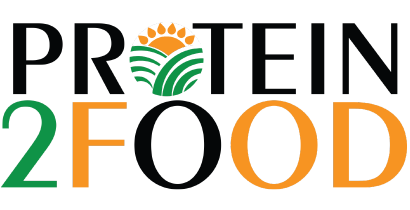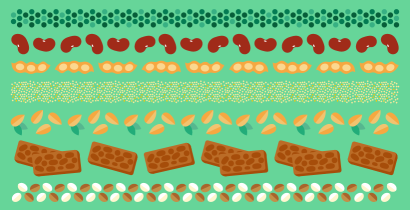Harnessing and combining the fragmented body of knowledge in Europe in the field of plant food bioactives (POSITIVe)
Last Updated : 21 April 2015Inter-individual variation in response to consumption of plant food bioactives and determinants involved
Cardio-metabolic disease (cardiovascular diseases, type 2 diabetes, metabolic syndrome and obesity) is the leading cause of death worldwide and a prominent public health problem. These chronic disorders can be prevented, delayed or reduced by improving our lifestyle, and specifically, our eating habits. It is thus of crucial importance to develop efficient strategies that target the dietary behaviours of European consumers.Increasing the consumption of plant foods rich in bioactive compounds is one important strategy that is being approached.Plant foods are exclusively rich sources of a large range of compounds grouped under the term of ‘bioactive compounds’ which can beneficially affect our health, particularly by decreasing the risk of cardio-metabolic diseases. A large body of evidence from observational and intervention studies has shown that some of these compounds (carotenoids, glucosinolates, phytosterols and polyphenols) can significantly contribute to reduce the risk of cardio-metabolic disease. However, for some plant food bioactives a large variation in individual responses has been observed, which must be better understood.
Personalised nutrition is a new model in nutrition research that emerged from the observation that there are substantial differences between subjects in response to dietary interventions, due to both genetic and environmental factors. This is a question that needs to be properly addressed for plant bioactives, sincesome population subgroups may gain more benefit than others from the consumption of plant foods and their bioactives. Based on better knowledge of the factors that control the effects of plant food bioactives on individuals, efficient strategies could be developed to optimise the beneficial effects of plant food consumption for everyone.
POSITIVe is an initiative supported by COST (European Cooperation in Science and Technology), one of the longest-running European frameworks supporting cooperation among scientists and researchers across Europe. COST is an instrument that enables effective, efficient, fast and flexible networking for researchers to cooperate and coordinate nationally funded research activities.
POSITIVe will coordinate a multidisciplinary and multi-sector European network (29 countries), harnessing and combining the fragmented body of knowledge in Europe in the field of plant food bioactives. It will ensure the optimal translation of findings into applications and promote the leadership of European research in this field.
Main objectives:
The POSITIVe COST action initiative offers a collaborative approach in which European top-level experts in human nutrition and plant food bioactives, involved in cutting-edge technologies (metabolomics, metagenomics, nutrigenetics and nutrigenomics) and forefront research fields (personalised nutrition, human gut microbiota), together with experts from regulatory agencies and representatives from the agro-food industry will join efforts to:
- Evaluate the inter-individual variation in human absorption, metabolism and biological responses for common plant food bioactives.
- Identify the main determinants of inter-individual variation (age, gender, genetic makeup and microbiota composition).
- Define the best ways to address these points in future research projects and the potential concrete applications for the scientific community, food industry, public health regulatory authorities, health care professionals and the general public (consumers).
- Work and cooperate in the dissemination of results and information raised by POSITIVe for different end-users.
To achieve these objectives, POSITIVe will deploy COST networking activities including working group meetings, scientific workshops/conferences, training schools, scientific exchange visits, dissemination and scientific publications.
Expected outcomes:
This POSITIVe COST Action initiative will:
- Produce knowledge resources (best-practices, databases, guidelines, lists of factors/targets/gene variants of major interest, position papers and reviews) crucial to define strategies to organise populations into subgroups according to their ability to respond to plant food bioactives.
- Identify research priorities and roadmaps for future innovative research based on consensus.
- Facilitate the transfer of knowledge and skills to the next generation of scientists.
- Foster exchanges between scientists, industry and regulatory authorities and pave the way for future translation of scientific findings into applications.
- Provide the scientific basis for the emergence of innovative spin-off projects.
Updated scientific knowledge will be transferred to regulatory authorities for a new generation of nutritional recommendations targeted at large population subgroups, and will help in fostering the competitiveness of the European food industry to develop new functional/customised foods.
- POSITIVe is active on social media with its Facebook page.
- POSITIVe Newsletter Issue 1.
About POSITIVe COST Action:
POSITIVe is funded by the European COST organisation in the field of Food & Agriculture (FA1403). POSITIVE was launched on the 11th December 2014 in Brussels, Belgium, and will run until the end of 2018. The initiative is chaired by Dr. Christine Morand (INRA, France) and co-chaired by Dr Francisco Tomas-Barberan (CEBAS-CSIC, Spain) who will lead the network with the cooperation and help of a Management Committee (MC) and a Steering Committee (SC), formed by COST Action members. Currently it involves a total of 29 European countries. More information can be found on the POSITIVe website. For more information related to COST, you can visit their website or the COST Food and Agriculture Domain website.



